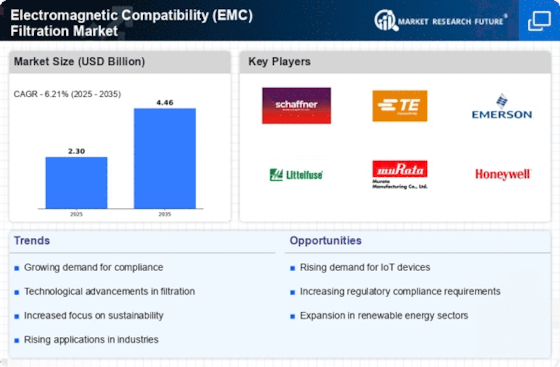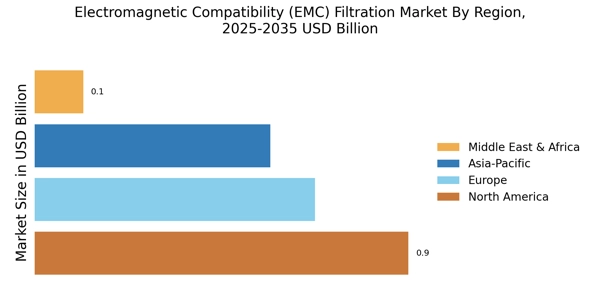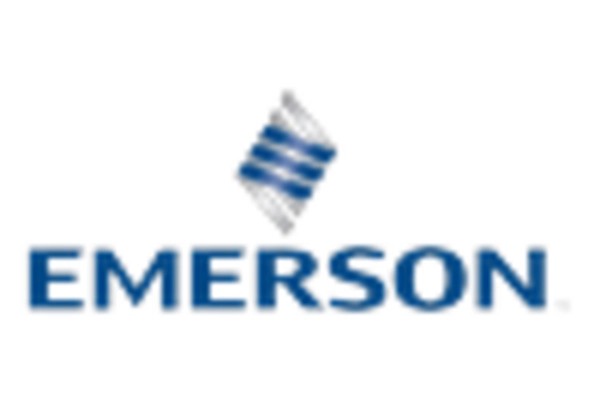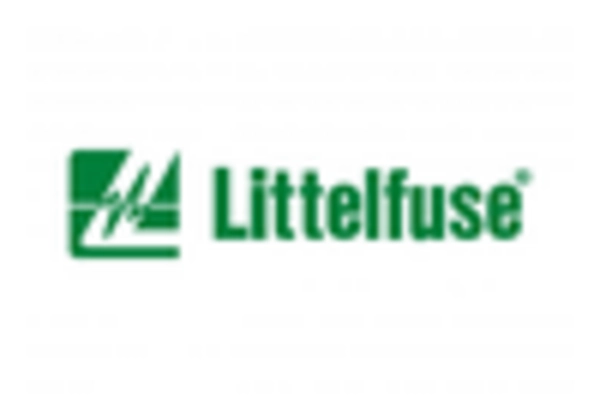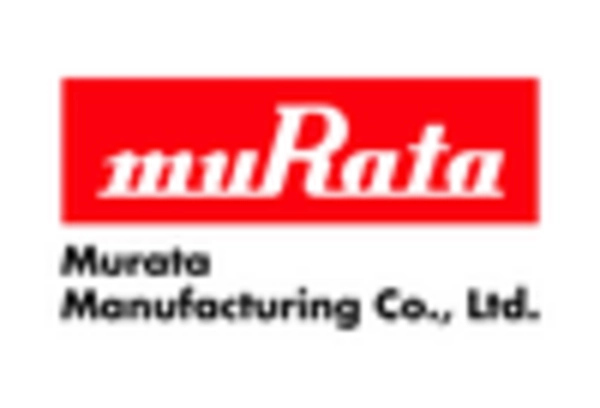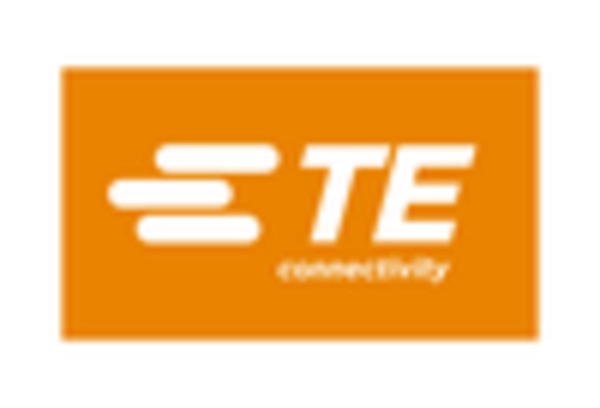Growth in Consumer Electronics
The Electromagnetic Compatibility (EMC) Filtration Market is significantly influenced by the rapid expansion of the consumer electronics sector. With the proliferation of devices such as smartphones, tablets, and smart home appliances, the demand for effective EMC solutions has escalated. According to recent data, the consumer electronics market is projected to reach a valuation of several trillion dollars by 2026, which inherently increases the need for EMC filtration to mitigate interference issues. As manufacturers strive to enhance product performance and reliability, the integration of advanced EMC filtration technologies becomes essential. This trend not only addresses consumer expectations for high-quality electronics but also ensures compliance with international EMC standards, thereby reinforcing the market's growth trajectory.
Increasing Regulatory Compliance
The Electromagnetic Compatibility (EMC) Filtration Market is experiencing a surge in demand due to stringent regulatory requirements imposed by various authorities. These regulations aim to ensure that electronic devices do not emit excessive electromagnetic interference, which could disrupt other devices. As industries such as automotive, telecommunications, and healthcare become more reliant on electronic systems, compliance with EMC standards becomes paramount. For instance, the International Electrotechnical Commission (IEC) has established guidelines that manufacturers must adhere to, thereby driving the need for effective EMC filtration solutions. This regulatory landscape not only compels companies to invest in EMC filtration technologies but also fosters innovation in product development, as firms seek to meet or exceed these standards.
Advancements in Automotive Technology
The Electromagnetic Compatibility (EMC) Filtration Market is poised for growth due to the advancements in automotive technology, particularly with the rise of electric vehicles (EVs) and autonomous driving systems. These innovations necessitate sophisticated electronic systems that require robust EMC solutions to function effectively without interference. As the automotive sector increasingly incorporates advanced electronics, the demand for EMC filtration solutions is expected to rise. Reports indicate that the automotive electronics market is anticipated to grow significantly, with a substantial portion dedicated to EMC compliance. This trend underscores the importance of EMC filtration in ensuring the reliability and safety of modern vehicles, thereby driving market expansion.
Emergence of Renewable Energy Systems
The Electromagnetic Compatibility (EMC) Filtration Market is also benefiting from the emergence of renewable energy systems, such as solar and wind power. As these systems become more prevalent, the need for effective EMC solutions to manage electromagnetic interference becomes critical. Renewable energy systems often involve complex electronic components that must operate harmoniously to ensure efficiency and reliability. The integration of EMC filtration technologies is essential to protect sensitive equipment from interference, thereby enhancing overall system performance. As investments in renewable energy continue to grow, the demand for EMC filtration solutions is likely to increase, positioning the market for substantial growth in the coming years.
Rising Adoption of Industrial Automation
The Electromagnetic Compatibility (EMC) Filtration Market is experiencing growth driven by the rising adoption of industrial automation technologies. As industries increasingly implement automated systems and robotics, the reliance on electronic components intensifies, leading to a greater need for effective EMC solutions. Automation systems must operate without electromagnetic interference to ensure precision and reliability in manufacturing processes. The market for industrial automation is projected to expand significantly, which in turn fuels the demand for EMC filtration technologies. This trend highlights the critical role of EMC solutions in maintaining operational efficiency and product quality in automated environments, thereby contributing to the overall growth of the EMC filtration market.

